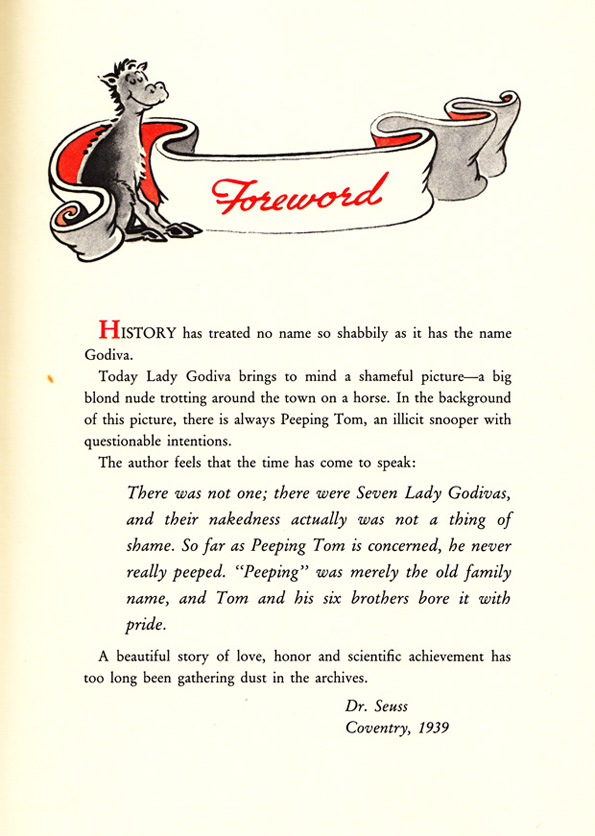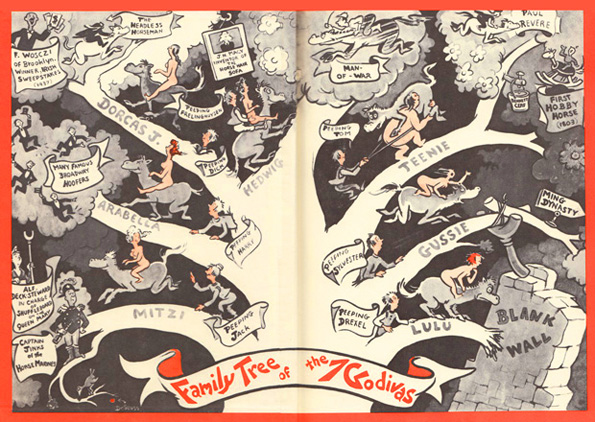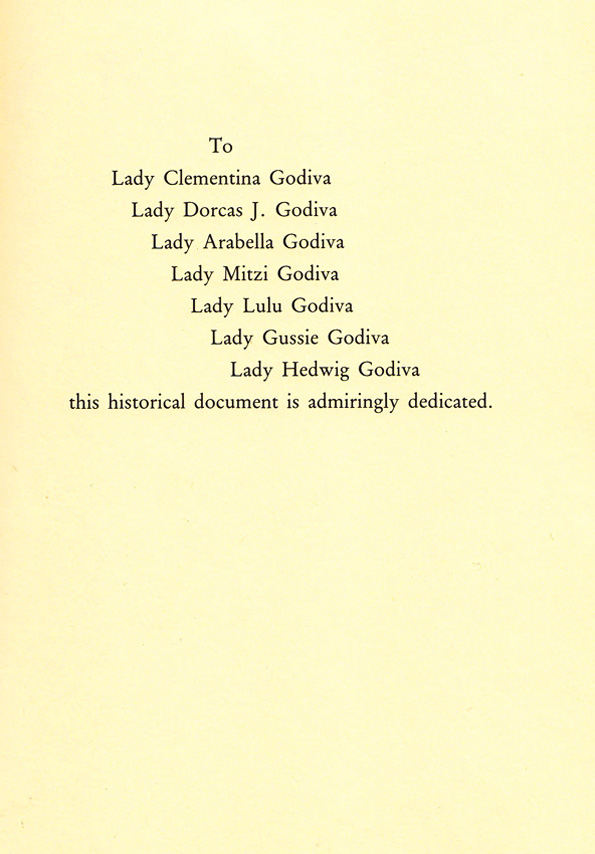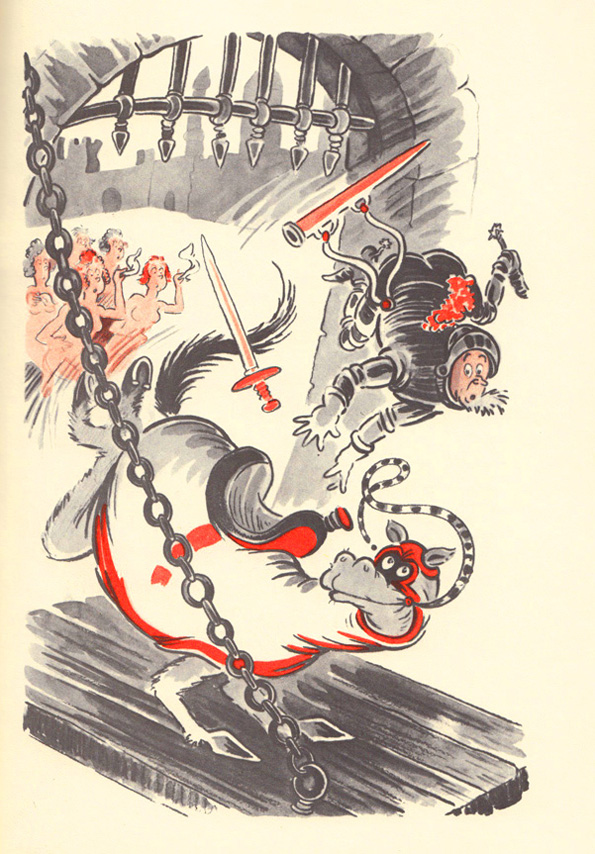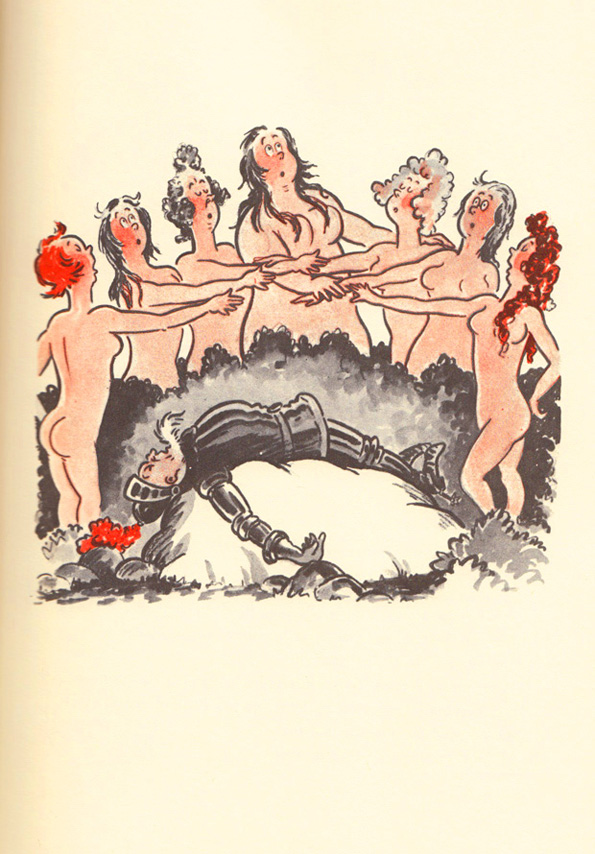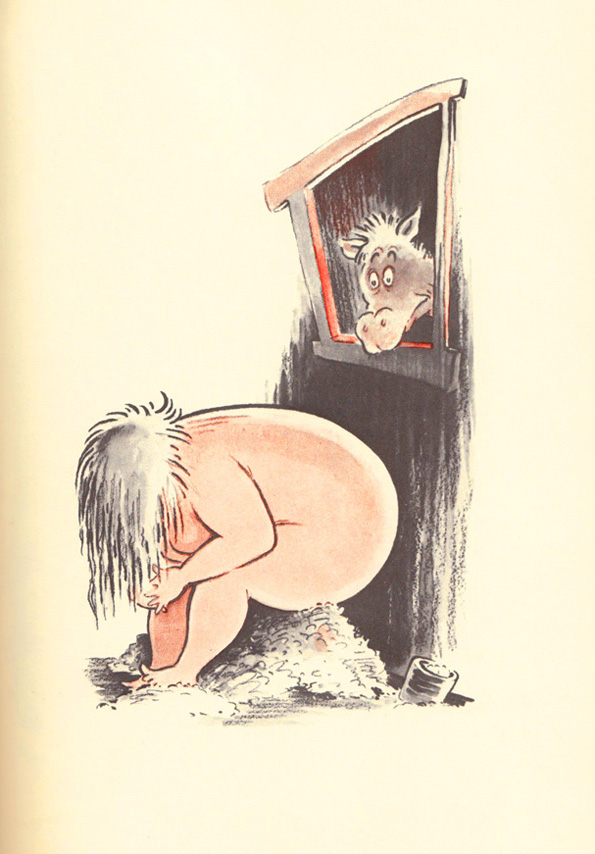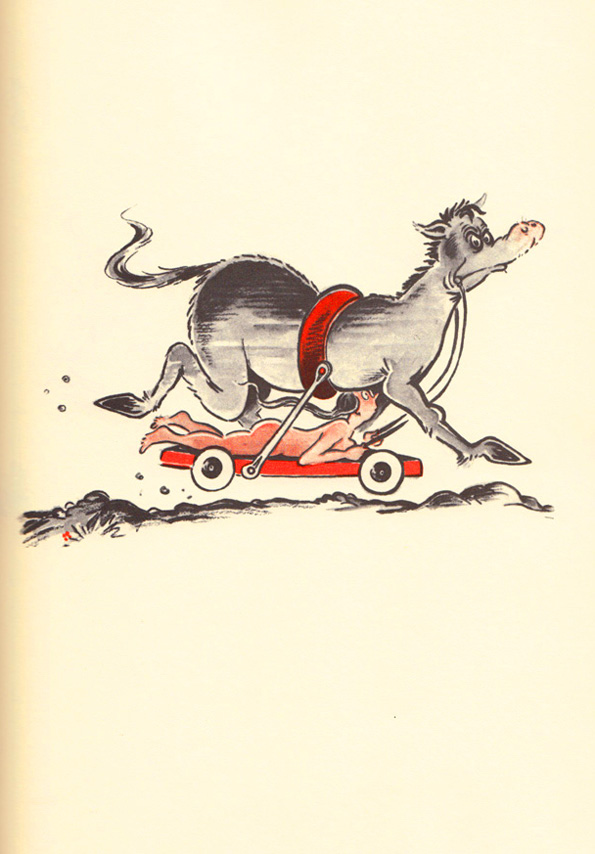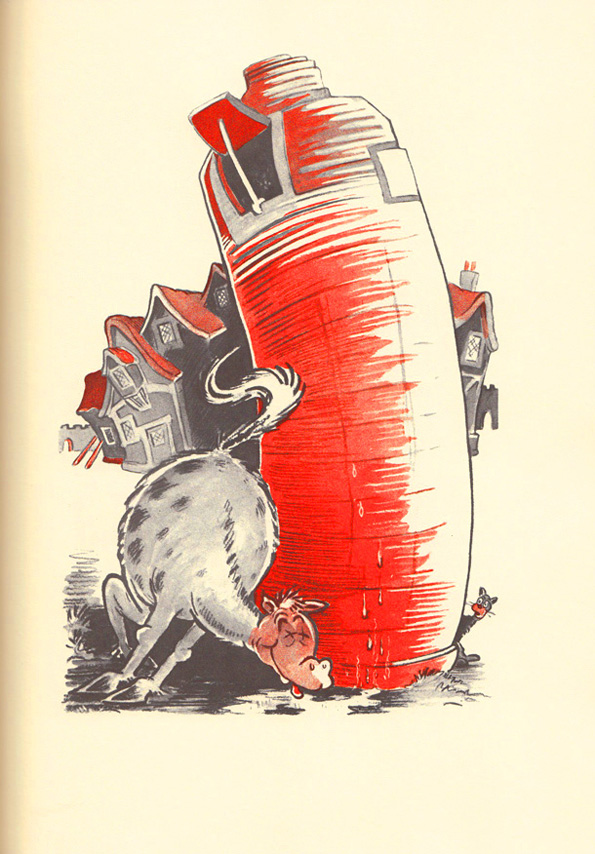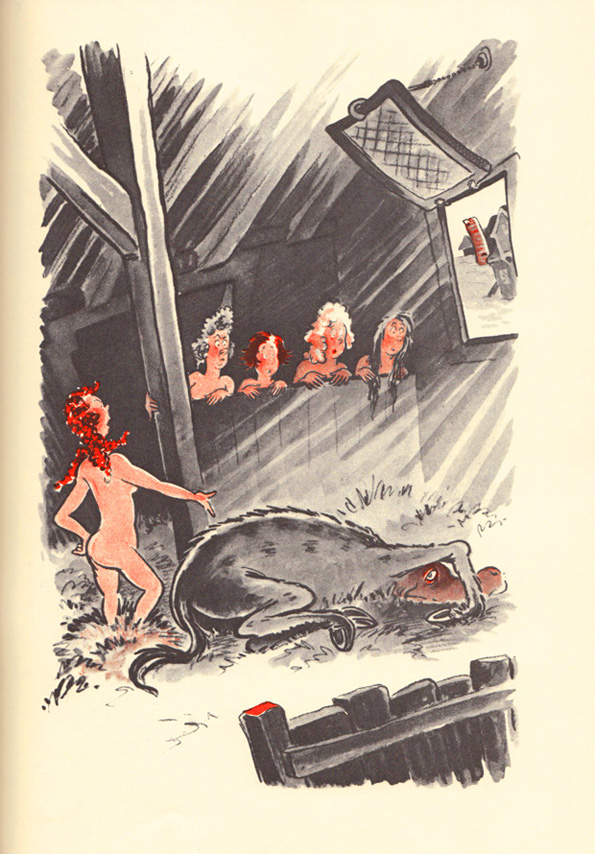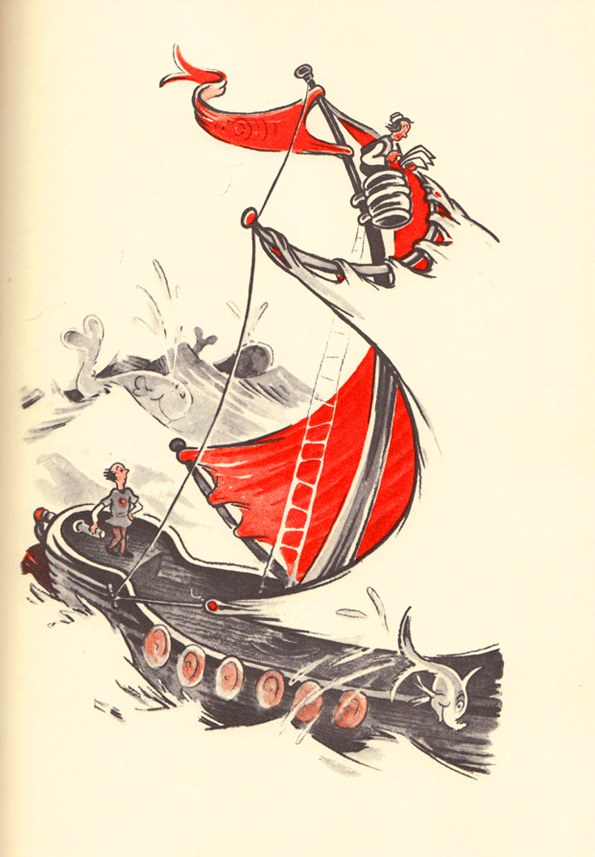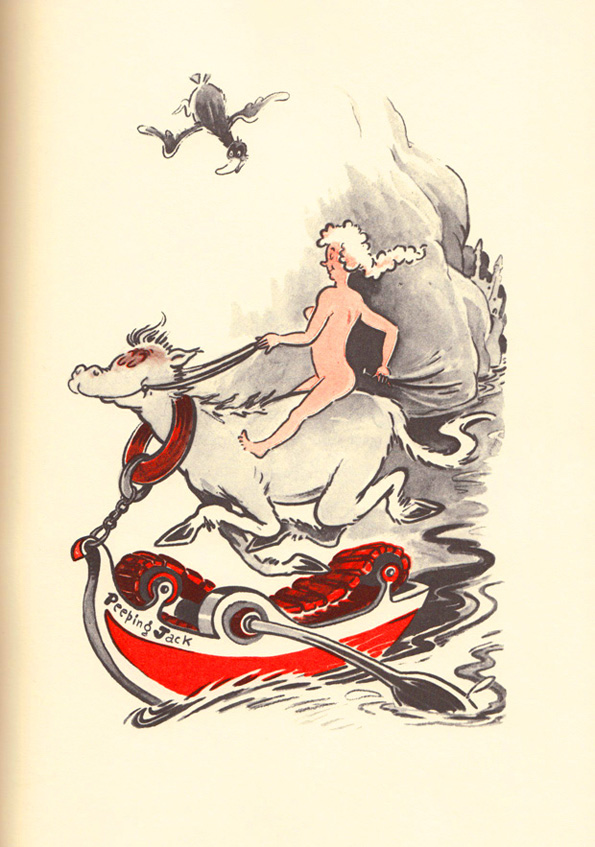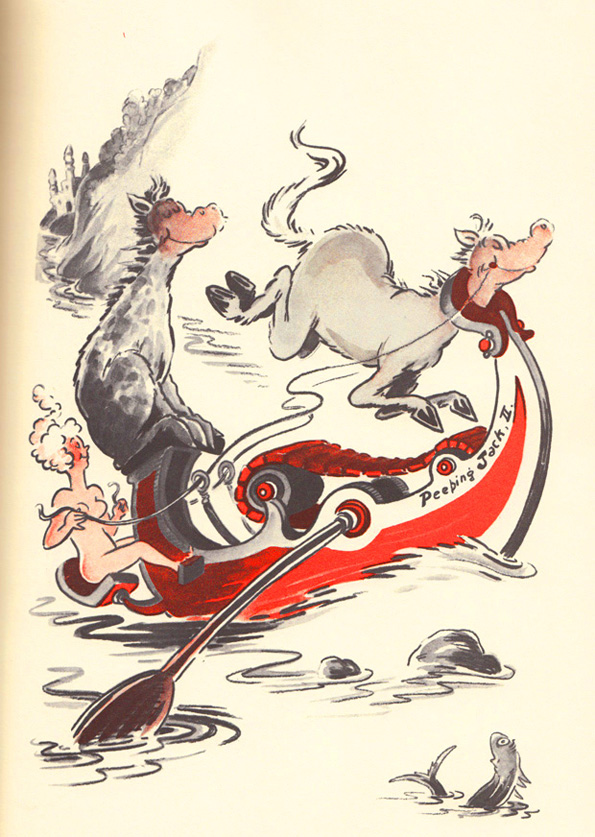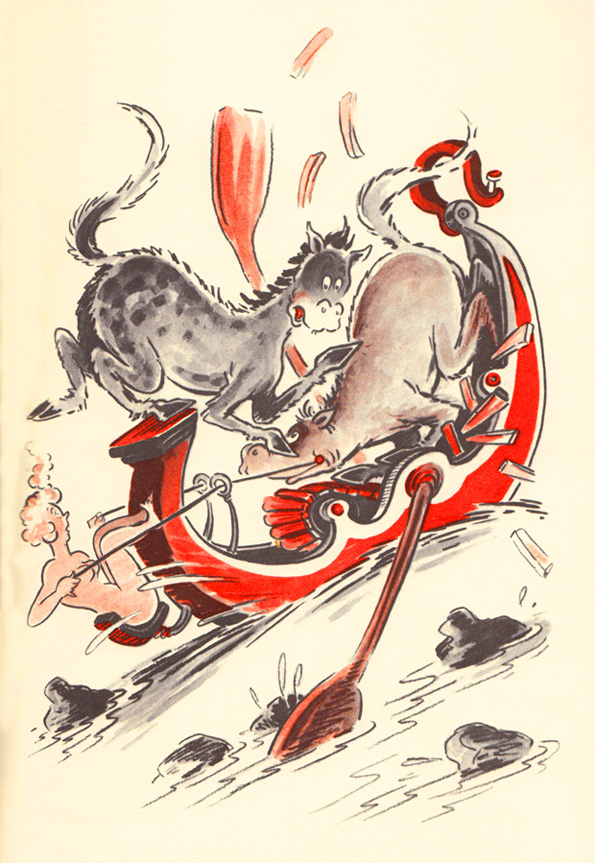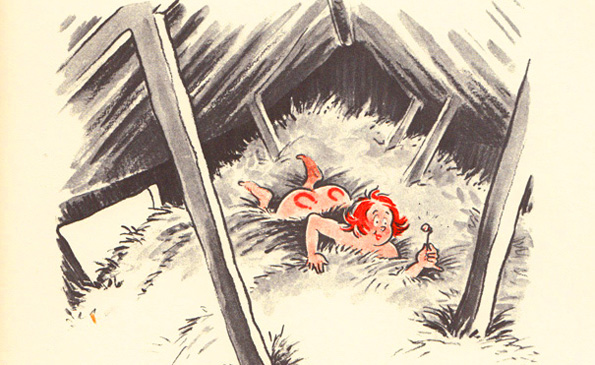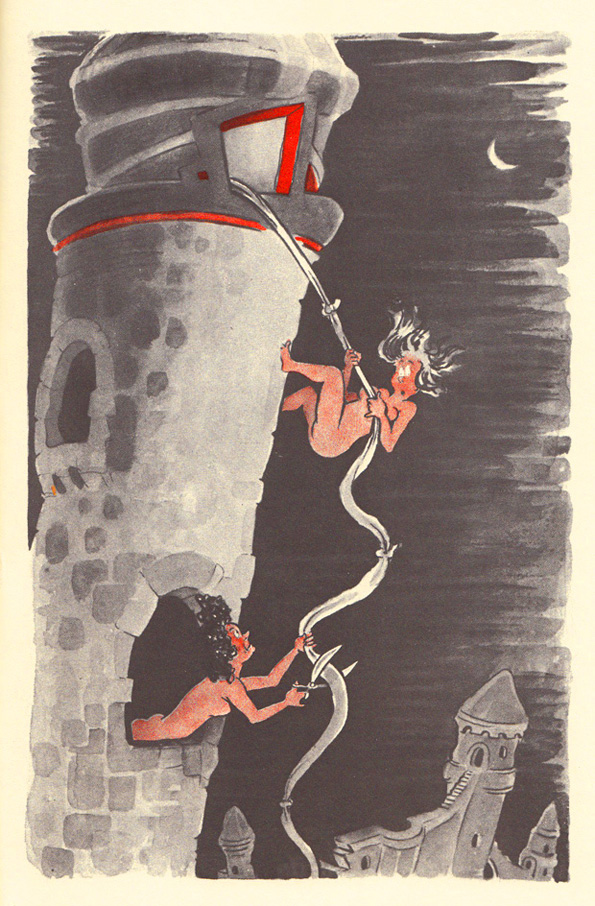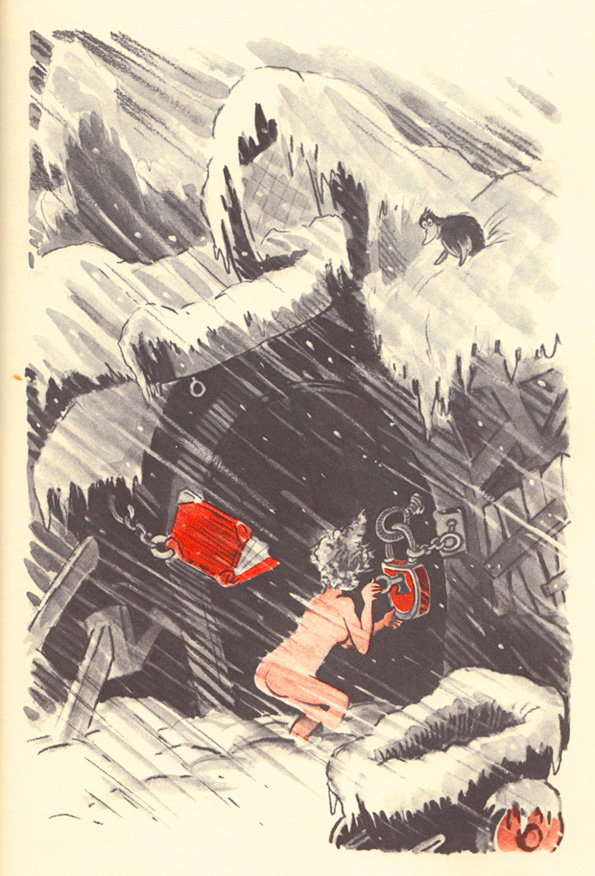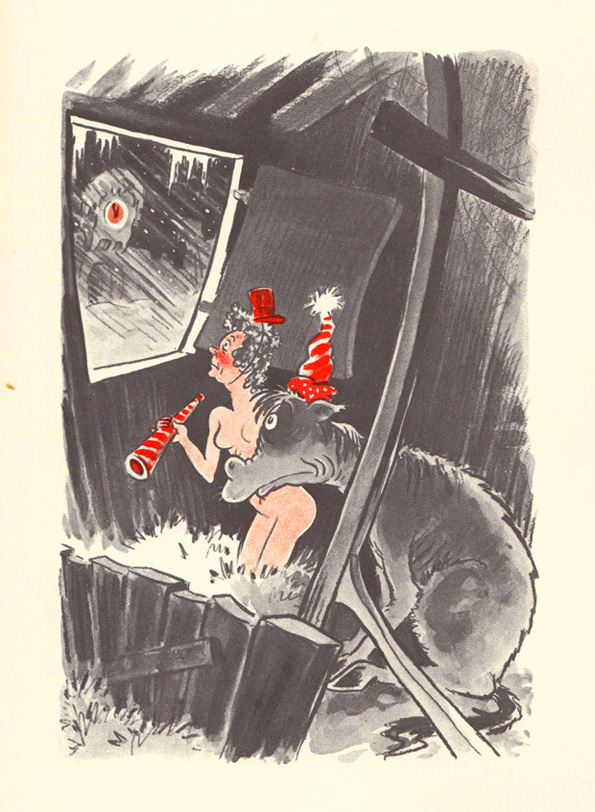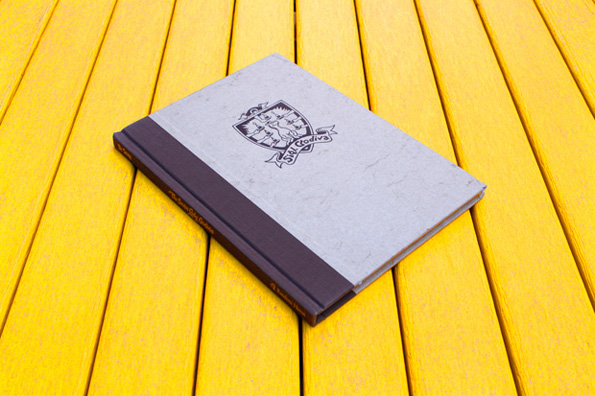One hundred eight years ago today, the world welcomed Theodor Seuss Geisel, better-known as Dr. Seuss—legendary children's book author, radical ideologist, lover of reading. Among his many creative feats is a fairly unknown, fairly scandalous one: In 1939, when Geisel left Vanguard for Random House, he had one condition for his new publisher, Bennett Cerf—that he would let Geisel do an "adult" book first. The result was The Seven Lady Godivas: The True Facts Concerning History's Barest Family, which tells the story of nudist sisters who, after their father's death, pledge not to wed until each of them has "brought to the light of the world some new and worthy Horse Truth, of benefit to man."
Geisel wrote in the foreword:
"A beautiful story of love, honor and scientific achievement has too long been gathering dust in the archives."
The humorous story is based on the Lady Godiva legend, according to which in 1037 the Earl of Coventry's wife rode naked on horseback through the streets of Coventry, protesting against her husband's unfair taxes. The citizens of Coventry were ordered to remain indoors, shuttered, as she rode. But one man, Peeping Tom, peered out and was then struck blind.
The book, however, was a complete flop. Ten thousand copies were printed on the first run, and only about 2,500 were sold. The Seven Lady Godivas eventually went out of print, causing Geisel to later say:
I attempted to draw the sexiest babes I could, but they came out looking absurd.
Absurd as they might be, and oddly unerotic despite the nudity, the illustrations are a treat, perhaps in that so-bad-it's-good kind of way, or perhaps because they offer endearing reassurance that even genius can falter.
This post appears courtesy of Brain Pickings, an Atlantic partner site.
Image credits: Random House
We want to hear what you think about this article. Submit a letter to the editor or write to letters@theatlantic.com.

